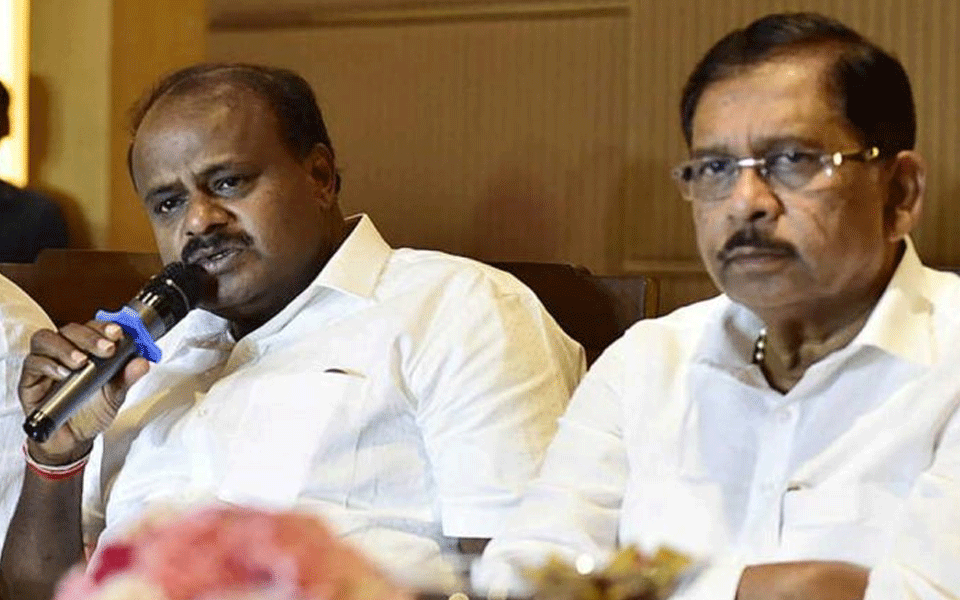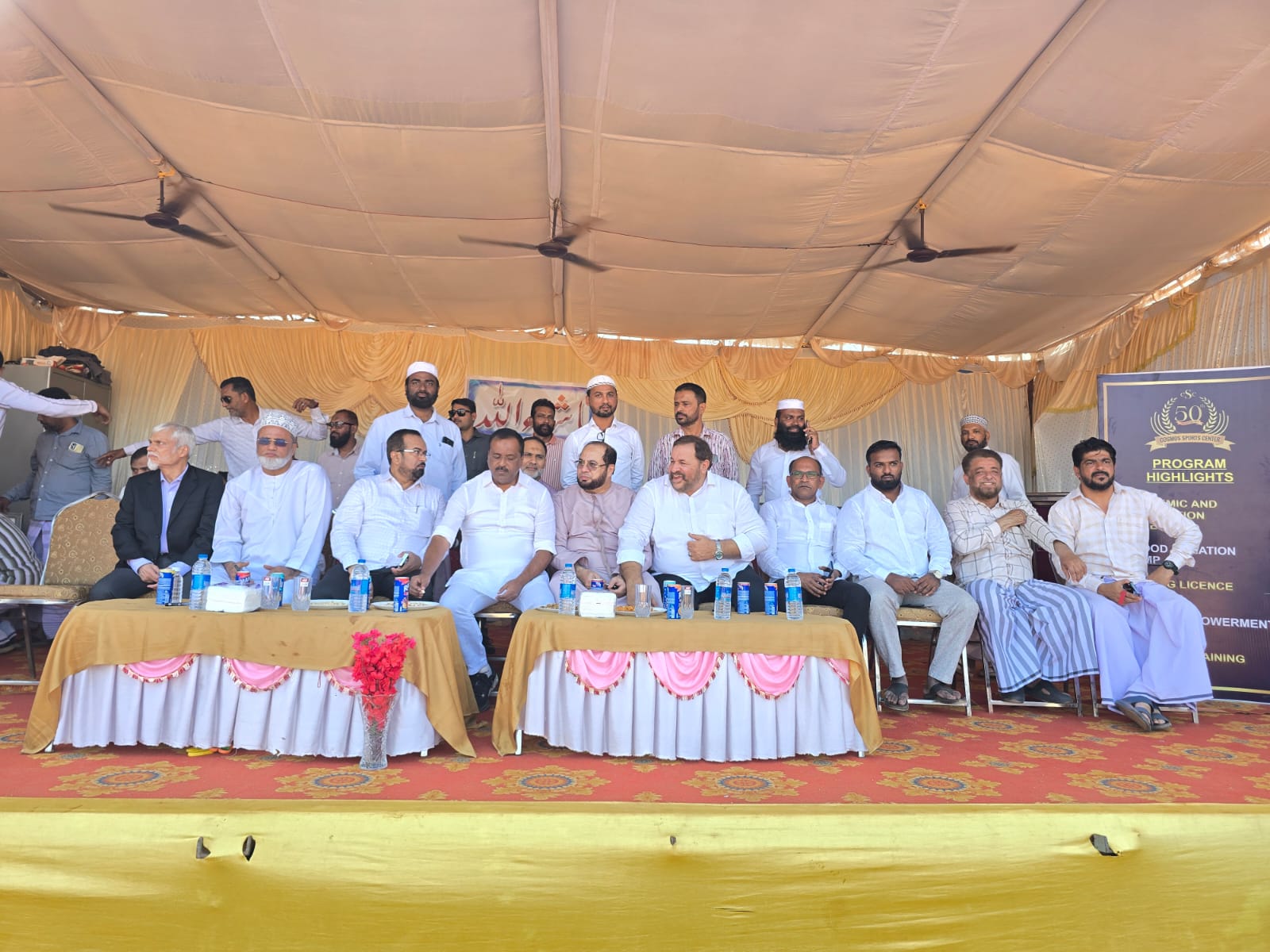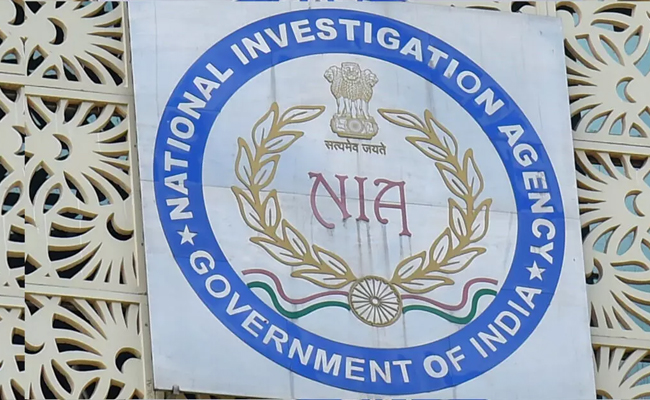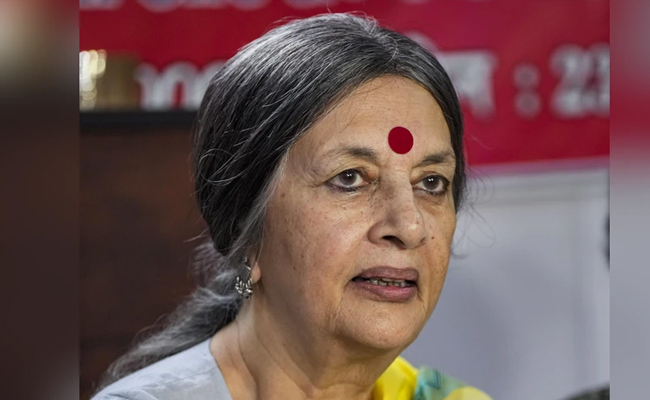Bengaluru, September 3: Chief Minister HD Kumaraswamy said that going by the results of the urban local bodies elections, the people in the state have accepted the Congress-JDS coalition government.
Speaking to reporters here on Monday, the Chief Minister said that they have not gone before the people with bing-bang. Both the parties have decided to leave the party workers and candidates for themselves and fight the elections locally. Like BJP leaders, the Congress and JDS have not formed teams and campaigned. They believed that the urban voters have always been supporting the BJP. But this result has clearly showed that the BJP has been losing its popularity even in urban areas, he said.
The people have supported the 100 days administration of the coalition government in the state, for which he would be grateful to the voters. The government would give a clear answer through development works for those who have involved in false propaganda against the stability of the government. BJP leaders have been asking about the existence of the government and asking as to why the Chief Minister did not visit the north Karnataka. Did Yeddyurappa, Sadananda Gowda and Jagadish Shettar visit the north Karnataka within three months after becoming the chief ministers? He would give answers with clear evidence to all the allegations made against him, he said.
“BJP people have been asking me to publish the White Paper on the financial condition, farmers loan waiver and achievements of the government. If they want, I will publish it in saffron colour. In the local bodies where no party has got majority, we will not give room for any confusions. The Congress and JDS would have coalition during the election to presidents and vice presidents”, he said.
The coalition government has just completed 100 days in office. Within a short span of time, BJP people have been saying that the coalition partners should have swept all the seats in the state. But with the blessings of the people of the state, he would try to sweep all the seats in the Lok Sabha election in the state, he said.
Belagavi politics is different
“Belagavi district politics is different. Jarkiholi brothers have been winning the seats in Belagavi like independents. Ramesh Jarkiholi is the minister and his brother Satish Jarkiholi is the MLA. BJP leaders are day dreaming that Satish Jarkiholi will join the BJP. But their dream will not come true”.
- H.D Kumaraswamy, Chief Minister of Karnataka
Let the Truth be known. If you read VB and like VB, please be a VB Supporter and Help us deliver the Truth to one and all.
Mumbai (PTI): In view of Argentine superstar footballer Lionel Messi's visit to Mumbai on Sunday, the city police are implementing stringent security measures, like not allowing water bottles, metals, coins inside the stadiums and setting up watchtowers to keep an eye on the crowd, officials said.
The police also said taking extra care to avoid any stampede-like situation and to prevent recurrence of the chaotic situation that unfolded in Kolkata during Messi's visit on Saturday as thousands of fans protested inside the Salt Lake stadium here after failing to catch a clear glimpse of the football icon despite paying hefty sums for tickets.
Messi is expected to be present at the Cricket Club of India (Brabourne Stadium) in Mumbai on Sunday for a Padel GOAT Cup event followed by attending a celebrity football match. He is expected to proceed to the Wankhede Stadium for the GOAT India Tour main event around 5 pm.
"In view of Lionel Messi's visit to Mumbai, the police are geared up and have put in place a high level of security arrangements in and around the stadiums located in south Mumbai. Considering the chaos that prevailed in Kolkata and the security breach, we have deployed World Cup-level security arrangements at Brabourne and Wankhede stadiums," an official said.
Expecting heavy crowd near the stadiums during Messi's visit, the city police force has deployed more than 2,000 of its personnel near and around both the venues, he said.
As the Mumbai police have the experience of security 'bandobast' during the victory parade of ICC World Cup-winning Indian team and World Cup final match at the Wankhede Stadium, in which over one lakh cricket fans had gathered, we are prepared to handle a large crowd of fans, he said.
"We are trying to avoid the errors that occurred in the past," the official said.
There is no place to sneak inside the stadiums in Mumbai like the Kolkata stadium, according to him.
The police are also asking the organisers to provide all the required facilities to the fans inside the stadium, so that there will be no chaos, he said, adding the spectators have purchased tickets in the range of Rs 5,000 to 25,000. After paying so much of amount, any spectator expects proper services, while enjoying the event, he said.
The police are expecting 33,000 spectators at the Wankhede Stadium and over 4,000 at Brabourne Stadium. Besides this, more than 30,000 people are expected outside and around the stadiums just to have a glimpse of the football sensation, he said.
The organisers responsible for Messi's India visit recently came to Mumbai to discuss security arrangements. During the meeting, the Mumbai police asked them not to take the event lightly, according to the official.
After those requirements were fulfilled, the final security deployment was chalked out, he said.
Police has the standard procedure of the security arrangements inside the Wankhede Stadium, where people are barred from taking water bottles, metals objects, coins. Police are setting up watch towers near the stadiums and there will be traffic diversions, so that there is maximum space available to stand, according to the official.
Police are also appealing to the spectators to use public transport service for commuting and avoid personal vehicles to reach south Mumbai.
To avoid any stampede-like situation, police are also taking precautionary measures and will stop the fans some distance ahead of the stadium and public announcement systems will be used to guide the crowd. Barricades will be placed at various places to manage the crowd.
In case the crowd swells up beyond expectation, the police will divert people to other grounds and preparations in this regard underway, he said.
Additional police force has been deployed in south Mumbai to tackle any kind of situation, he said.





